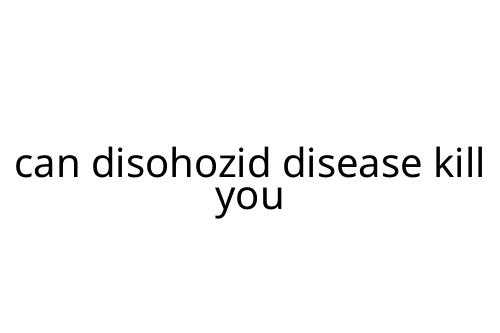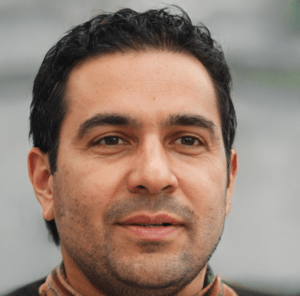can disohozid disease kill you
The question, "can disohozid disease kill you" is a valid concern for anyone who has encountered the term, whether in a medical context or elsewhere. While there isn’t widespread recognition of “disohozid disease” in mainstream medical literature as of now, it’s worth exploring similar-sounding conditions, possible risks, and general guidance for dealing with new or lesser-known diseases.
Understanding the Term
First, it's important to clarify—there is no formally recognized medical condition called "disohozid disease" in the resources of the World Health Organization, CDC, or major clinical references up to this point. It's possible the term is misspelled, mistranslated, or newly coined, or may circulate in informal communities or emerging medical discussions.
If you encountered this term from a social media post, alternative health source, or word-of-mouth, be cautious. Unfamiliar illnesses can create confusion and anxiety, especially if they’re described as life-threatening without credible evidence.
Assessing the Risk: Can It Be Fatal?
Assuming “disohozid disease” refers to a real condition—perhaps a rare or localized ailment—the fundamental concern is whether it could lead to death. For any disease, the risk of mortality depends on several factors:
- Nature of the disease: Is it infectious, autoimmune, genetic, or environmental?
- Severity and progression: Does it cause acute (sudden) or chronic (long-term) harm?
- Treatment options: Are effective therapies available, or is there a lack of medical consensus?
- Personal health factors: Age, immune status, and coexisting conditions matter.
Without verified information about disohozid disease, no clear “yes” or “no” can be given. However, if you suspect any serious illness or if someone attributes dangerous symptoms to a so-called “disohozid disease,” it’s imperative to consult with a doctor. Many legitimate illnesses can have deadly consequences if untreated, but early detection and accurate diagnosis are key to good outcomes.
Pros and Cons of Taking Unfamiliar Diagnoses Seriously
Pros
- You remain vigilant and proactive about your health.
- Early medical attention reduces risk from potential severe diseases.
Cons
- Self-diagnosis based on unverified or obscure terms can lead to unnecessary worry.
- Misinformation can delay getting the right treatment for a real, identifiable problem.
Practical Tips
- Verify Sources: If a healthcare provider mentions “disohozid disease,” ask for clarification. Request medical literature or documented cases.
- Avoid Self-Diagnosis: Don’t rely on internet forums or unofficial advice for critical health matters.
- Monitor Symptoms: If you or someone you know experiences unexplained symptoms, seek a medical evaluation.
- Report and Research: New diseases do emerge. Report suspicious clusters or novel symptoms to public health authorities.
Bottom Line
So can disohozid disease kill you? At present, there’s no medical evidence supporting the existence or fatality risk of a disease by this name. Stay informed, stay skeptical of unverified health claims, and prioritize open, honest dialogue with medical professionals for any health concern. That approach keeps you safe—regardless of the disease in question.




